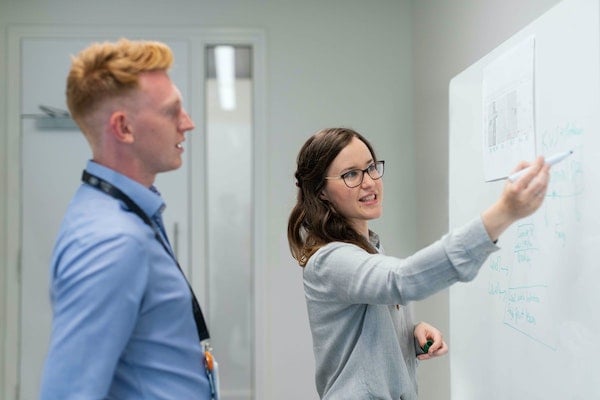Published on
Why We Need Adjunct Faculty Training

Over the past several decades, institutions of higher learning have become increasingly more reliant upon adjunct faculty to teach. In 2018, Inside Higher Ed reported that reliance on part-time, adjunct faculty is extremely high at just under 49% of all faculty across all institutions, while at community colleges, 68% of all instructors are adjunct. Nearly 70% of all newly hired faculty in community colleges are adjunct faculty. Many have been employed for decades with the same college. Technical and trade schools are not immune to lack of teacher training. There is a need for teacher training in the trades as the industry anticipates a growing need for new workers.
While there are many benefits that come with adjunct faculty—including current industry experience, flexible scheduling and lower cost—many adjuncts enter the field with little to no formal study of andragogy. It proves challenging for institutions to adequately train adjuncts on policies, procedures and systems, with teaching methodology often left completely unaddressed.
In a 2019 Gallup poll, 51% of Americans viewed having a college education as very important, compared to 70% of Americans in 2012. As students and parents question the value of a college degree and their return on investment, the American Council on Education informs us that there’s a great need to invest in quality teacher training. Students need effective instructors. Teachers who understand how students learn are needed in order to accelerate a students’ knowledge and get them quickly prepared for the job market. Effective instruction directly impacts student success. There are countless studies supporting this, but colleges still underinvest or fail to require faculty to systematically continue their professional development. The techniques for effective instruction are known and can be shared, though many in higher education, whether adjunct or full professor, do not study how to teach and how students learn. The cost of attrition and delayed graduation for students and institutions are extremely high. The cost for students who take longer to complete, result in higher student debt and delayed entry into the workforce.
At College of DuPage, 80% of all teaching faculty are adjuncts. The college is fortunate to draw from a large metropolitan area with diverse industry clusters and depth. Over the years it has become clear that such industry experts have little time to become proficient in college systems, often receiving their assignments very close to the start of the term. Many possess great knowledge and enthusiasm, but little to no formal study or teaching experience.
Given this reality, College of DuPage Continuing Education along with the Office of Adjunct Faculty Support developed the Adjunct Faculty Training Institute (AFTI). Launched at the College of DuPage in 2016, the Adjunct Faculty Training Institute provides a comprehensive program of professional development for faculty and adjuncts at colleges and universities nationwide. Professional education offered through AFTI is designed to deliver best-practice teaching strategies, increase student achievement and reduce student attrition rates. The online courses are designed to deliver instruction effectively and create a cohort environment where instructors share best practices.
Courses include: Introduction to College Teaching; Learner-Centered Teaching; Diversity, Social Justice and Inclusion in the Classroom; and Assessment of Student Learning.
Over 200 participants have gone through at least one of the four courses in the Adjunct Faculty Training Institute and have offered extremely positive feedback:
“I benefited from the individualized feedback on each assignment. Going forward, I will be shifting more of the responsibility for learning to the students so that class time is spent in a workshop/application setting. The goal is to spend less time lecturing and more time engaging in meaningful activities.” Shannon Caldwell, Adjunct Faculty, Languages
“The Learner-Centered Teaching course offered at College of DuPage’s Adjunct Faculty Training Institute reinvigorated me as an instructor! I have been able to implement simple strategies that have produced astonishingly positive outcomes for my students. If you’re looking for a professional development opportunity, I highly recommend Learner-Centered Teaching!” Lauren Morgan, Professor, Speech Communications
The National Council for Continuing Education and Training (NCCET) is taking this dynamic program to the national stage through a partnership with College of DuPage. NCCET members will receive 25% off the course fee. The next start date for AFTI courses is in February 2021. For more information, contact Jenifer Walsh walshj103@cod.edu
Author Perspective: Administrator


